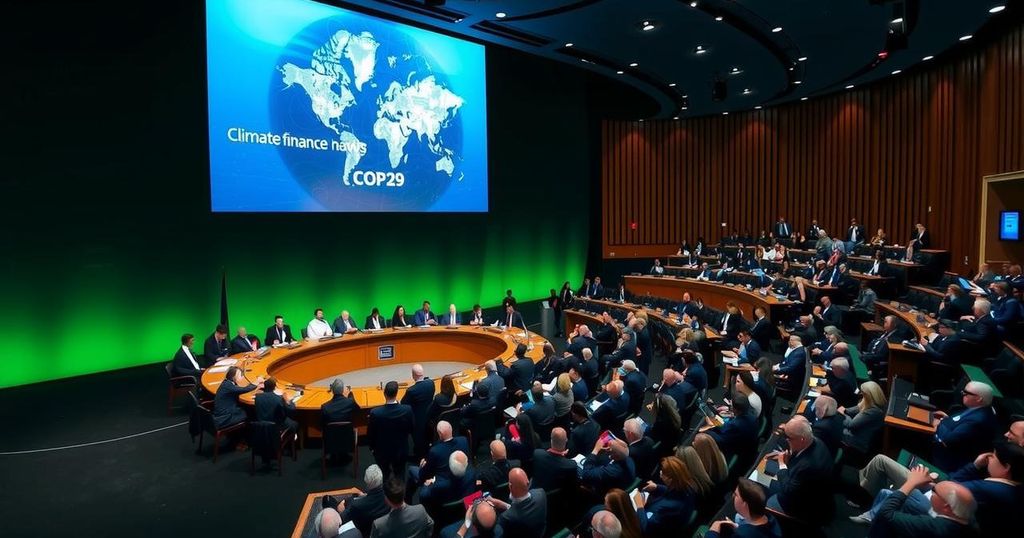COP29 concluded with a controversial climate finance goal of $300 billion by 2035, widely regarded as inadequate to address the climate crisis. Criticism focused on the lack of action and accountability from developed nations, which failed to meet their obligations to support vulnerable countries. Stakeholders call for a more robust financial response at COP30 in Brazil, emphasizing the urgent need for grant-based financing to adapt to climate impacts.
The conclusion of COP29 on November 23 prompted widespread criticism regarding the newly established climate finance goal, which many considered insufficient to meet the urgent needs of vulnerable nations suffering from the climate crisis. Despite a chaotic negotiation process, the agreement fell far short of the estimated $1.3 trillion needed per annum to address the impacts of climate change effectively. Many leaders from global organizations expressed their dismay at the lack of accountability and concrete action from developed nations, citing a significant moral failure in honoring their commitments to assist developing countries, particularly given the escalating climate emergencies faced by these populations.
The final agreement set a new climate finance goal at $300 billion per year by 2035, a target seen by many as not only inadequate but as potentially further entrenching existing inequalities. Emerging dialogues from prominent figures highlighted the urgent necessity for grant-based financing models, particularly in the face of an emerging fossil fuel crisis and the essential need for climate adaptation funding. Stakeholders are now looking to COP30 in Brazil with hopes for a more robust response and concrete commitments from developed nations to fulfill their financial obligations, which were largely ignored at COP29.
The Conference of the Parties (COP29) took place in Baku, Azerbaijan, attracting international attention with its urgent climate focus. This year’s summit was especially critical due to the growing climatic disasters that disproportionately affect developing countries, which were expected to receive financial support from wealthier nations. Climate finance has been a contentious issue in previous conferences, with developing nations demanding urgent action and resources to combat climate impacts that they did not cause. The need for a substantive financial commitment to support adaptation and mitigation efforts continues to escalate as climate emergencies grow increasingly severe.
In summary, COP29 has been marked by significant disappointments regarding climate financing commitments from developed nations, culminating in a new climate finance goal that has been universally criticized as grossly inadequate. The inability to secure sufficient and secure financial agreements represents not only a failure to act responsibly but also a dangerous shortfall that threatens the most vulnerable communities. As stakeholders prepare for COP30, there remains hope and a call for action to ensure that equitable and robust financing systems are implemented to combat the escalating climate crisis effectively.
Original Source: www.thecanary.co






